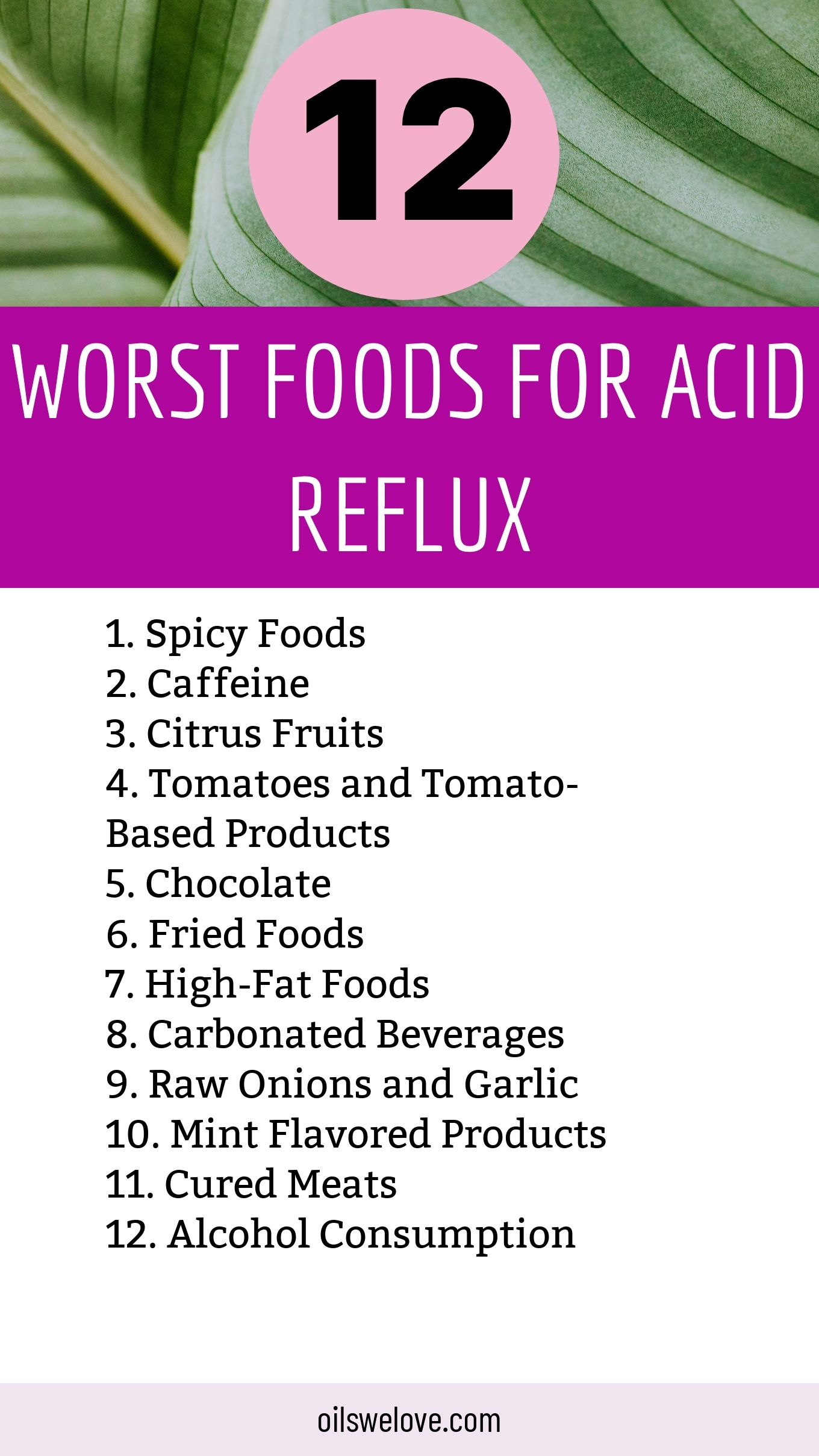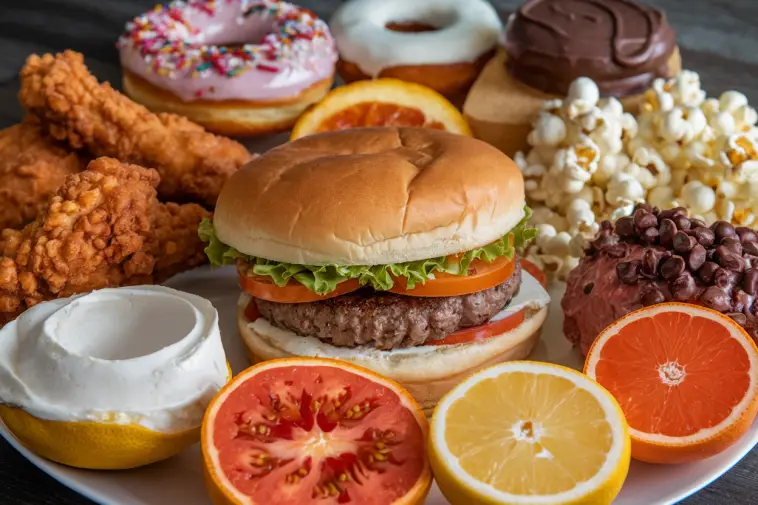Acid reflux can be a painful and uncomfortable condition, often exacerbated by the foods we eat. In this article, we will explore the 12 worst foods for acid reflux, and how they can contribute to symptoms and flare-ups.
When it comes to managing acid reflux, diet plays a crucial role. Certain foods can trigger heartburn and exacerbate symptoms, making it important to avoid them if you suffer from this condition. Here are some of the worst offenders:
1. Spicy Foods: Spicy dishes can irritate the esophagus and trigger acid reflux symptoms.
2. Citrus Fruits: Oranges, lemons, and other citrus fruits can increase acid production in the stomach.
3. Tomatoes: High in acidity, tomatoes can worsen heartburn and reflux.
4. Chocolate: This sweet treat can relax the lower esophageal sphincter, allowing acid to flow back up.
5. Coffee: Caffeinated beverages like coffee can stimulate acid production and relax the esophageal sphincter.
Avoiding these foods and making dietary changes can help alleviate symptoms of acid reflux and improve overall quality of life. For a comprehensive list of the 12 worst foods for acid reflux, continue reading below.
The Culprits Behind Acid Reflux: Foods to Avoid
Acid reflux, that pesky, burning feeling in your chest, can be a real drag. But did you know that your diet might be one of the biggest culprits? Certain foods are notorious for triggering those uncomfortable symptoms. Let’s dive into some of the worst offenders and explore why they’re so bad for acid reflux.
1. Spicy Foods
Spicy foods like hot peppers, wasabi, or horseradish can be a flavor sensation, but they’re also known to irritate the esophagus. The heat from these foods can exacerbate acid reflux symptoms, making your burning sensation even more intense. If spice is your life, it might be time to explore milder options to keep that flame in check. It’s always best to savor those spices in moderation. Learn more from the National Institute of Diabetes and Digestive and Kidney Diseases.
2. Caffeine
Caffeine lovers, brace yourselves. That morning cup of coffee, afternoon tea, or chocolate treat might be doing more harm than good. Caffeine can relax the lower esophageal sphincter (LES), making it easier for stomach acid to sneak up into your esophagus. Consider limiting your caffeine intake or switching to decaf to keep those reflux episodes at bay. Read more on Healthline.
3. Citrus Fruits
Oranges, lemons, limes, and grapefruits are packed with Vitamin C, but they also come with a hefty dose of citric acid. This acid can easily trigger acid reflux symptoms in sensitive individuals, bringing on that all-too-familiar burn. Try swapping citrus fruits for other fruits like bananas or melons, which are generally gentler on your tummy. Explore more at the Acid Reflux Foundation.
4. Tomatoes and Tomato-Based Products
Tomatoes are a staple in many delicious dishes, but their acidity can be a nightmare for those with acid reflux. Whether it’s a fresh tomato, pasta sauce, pizza sauce, or ketchup, these foods can send your symptoms soaring. Consider using substitutes like pesto or a creamy white sauce to enjoy your favorite dishes without the burn. Find out more from Medical News Today.
5. Chocolate
We know, chocolate is irresistible. But dark chocolate, in particular, contains cocoa solids and high fat content that can relax the LES, worsening acid reflux symptoms. If you’re craving something sweet, try satisfying your sweet tooth with a small piece of white chocolate or fruit instead. You might find it equally delightful without the discomfort. Discover more at the Mayo Clinic.
6. Fried Foods
Fried foods, whether it’s your favorite fries or crispy chicken wings, are loaded with fats that slow down digestion. This delayed digestion increases pressure on the LES, often leading to a reflux episode. Opting for baked or grilled alternatives can help you enjoy similar flavors without the side of heartburn. Check out more from the American Gastroenterological Association.
7. High-Fat Foods
Cheeseburgers, bacon, and fried chicken—oh my! These high-fat foods take longer to digest, putting extra pressure on the LES and exacerbating acid reflux symptoms. Consider indulging in these treats occasionally and pairing them with lighter, more digestible foods to find a balance that suits your stomach. Read more on Healthline.
8. Carbonated Beverages
Soda pop and sparkling waters may be refreshing, but the fizz can lead to gas buildup and increased intra-abdominal pressure, worsening symptoms of acid reflux. Try still water, herbal tea, or other non-carbonated drinks to keep your thirst quenched without adding fuel to the fire. Learn more at the Acid Reflux Foundation.
9. Raw Onions and Garlic
Onions and garlic are flavor powerhouses, but when consumed raw, they contain sulfur compounds that can irritate the stomach lining. Cooking them can reduce this effect, but they might still trigger issues depending on individual tolerance levels. Experiment with smaller amounts or cooked versions to see what works best for you. Discover more from Medical News Today.
10. Mint Flavored Products
Mint herbs, including peppermint, might seem refreshing, but they contain menthol which can relax the esophageal sphincter, increasing susceptibility to heartburn. Consider avoiding minty treats, especially after late-night meals, to keep heartburn at bay. Explore more at the Acid Reflux Foundation.
11. Cured Meats
Processed meats like salami, sausages, and pepperoni contain preservatives like nitrates and nitrites that can irritate the esophageal lining. Consuming these regularly can lead to chronic discomfort, so enjoy them sparingly and explore fresher options to add to your meals. Read more on Healthline.
12. Alcohol Consumption
Alcohol, whether in beer, wine, or spirits, can directly irritate the gastrointestinal tract, causing inflammation and worsened GERD symptoms. Consider moderating your alcohol intake or opting for alcohol-free alternatives to keep your symptoms in check. Learn more at the Mayo Clinic.
Now that you’ve got the lowdown on what to avoid, managing acid reflux might seem a bit easier. Remember, you don’t have to ditch these foods completely, but moderation is key. Combining these dietary shifts with advice from your healthcare provider could be your path to fewer flare-ups. Feel free to explore resources like the NIDDK, the AGA, or the Acid Reflux Foundation for more helpful tips. Here’s to comfortable, heartburn-free days ahead!





